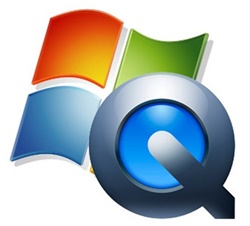As a guy that is on the go all the time with work, I’m always taking my electronic lifesavers with me (laptop, cell phone, tablet) wherever I’m headed. And even when I find myself with a few precious moments in paradise—like my last little trip to the Gulf coast—I have my moments when I let my guard down a little and want to just hang out at a Margaritaville.
And when I was sitting in that beach front Margaritaville-like paradise, I notice that a lot of people didn’t have a care in the world- especially when it came to security. Doors left unlocked, beach bags strewn around empty pool chairs and towels and even money and IDs left on tables. Everyone was relaxed to the point where it was rubbing off on even me—and my inner IT security cynic.
continue reading
We thought it would be helpful this week if we gave you a little information straight from the mouth of a cyber-victim—someone that has fallen to ransomware. While we decided to conceal this victim’s identity for self-preservation, I’d consider this individual one of the smartest people I know and a pleasure to work with. When I discovered that even they were susceptible to ransomware attacks, I knew that anyone could fall victim if all the necessary safeguards aren’t in place to steer clear from these malicious scams.
So today, after talking with several victims, including the one I mention above, I’ve put together some questions to ask yourself to deal with a hack.
continue reading
Ransomware is a type of malicious software (malware) that has increasingly targeted businesses of all sizes across all geographies. Businesses are targeted and infected with ransomware through human weakness via social engineering and deception and occurs more often when business networks are not properly maintained, updated and secured.
How does it spread?
Essentially all ransomware is transmitted via phishing emails to you and your end users. With humble beginnings as generic or blatantly obvious scams, these emails have advanced to sophisticated and highly targeted emails to both your organization as well as to key players within your organization. Phishing scams have gotten to the point where they sometimes produce email chains that convincingly get employees to fulfill requests. Generally, phishing emails compromised with malware occur in two flavors:
continue reading
Is Your Email Safe?
You log into your Gmail and something’s not quite right. You can’t immediately put your finger on it, but it looks like your display has changed a little—you initially shrug it off as Google updating their system.
But then you notice unusual emails in your Sent folder and replies to emails you don’t remember sending in your Inbox. What is going on? Could your Gmail account have been hacked?
The reality is that a quarter of online accounts are hacked—and it’s entirely possible for your email account to have been hacked, giving someone access to banking information, your calendar, contacts and, the ability to impersonate and extort money from you, your business and family members and friends.
continue reading
If you’re a Microsoft Windows user and still have Apple QuickTime installed on your machine, you need to remove it immediately. Apple has ceased updates for it and the Department of Homeland Security’s U.S. Computer Emergency Readiness Team (US-CERT) has strongly advised QuickTime to be removed from Windows machines. The recommendation comes after researchers reported two new critical security holes in QuickTime—vulnerabilities that won’t be patched!
And you’ve probably been at risk for some time. At first, the recommendation to cease use of QuickTime was in response to a recent report that Apple will no longer be providing security updates for the Windows version. But many security organizations, including US-CERT, have recently discovered that Apple stopped updating the QuickTime for Windows software for some time. In fact, the tech company deprecated all developer APIs for QuickTime on Windows back in 2013.
continue reading
When I was a kid, I’d spend endless hours huddled around my Apple II-e computer all summer long programming on a green screen—never would my mom ever worry about me getting scammed or hurt from bad guys online. The notion that anyone would do me harm through my computer was inconceivable.
But times have changed—and with more exposure online than ever before, we really have to be careful that our kids are safe online.
We’ve been talking about cybersecurity for months now and in our discussion of the latest crimes and schemes hackers and thieves are pursuing to take advantage of you and your business. Now that spring terms are ending soon and summer break is around the corner, I wanted to give you all some steps to take to make sure the kids in your life are protected as well.
continue reading





